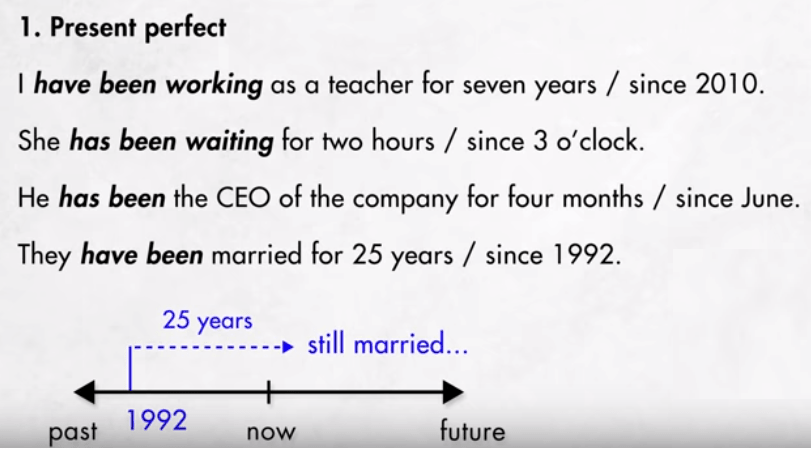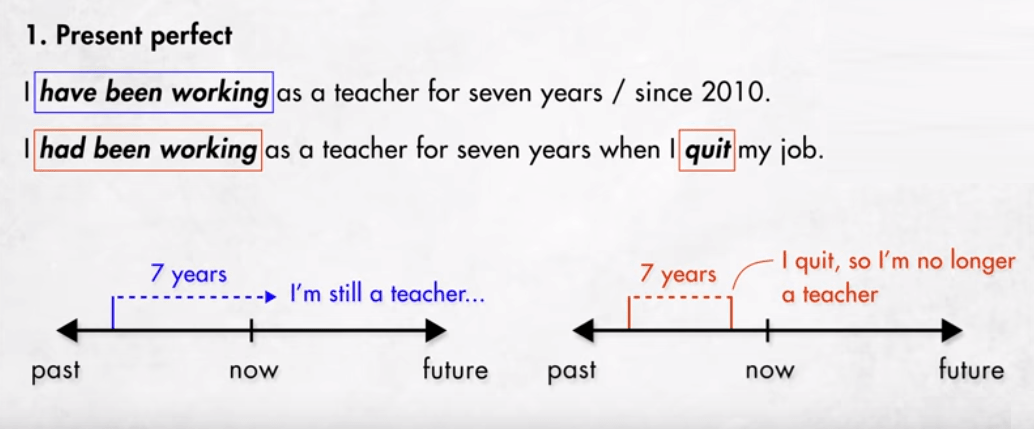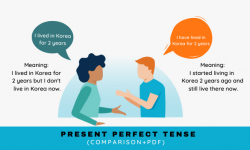Difference Between “Have Been,” “Has Been,” and “Had Been”?
If you’ve been wondering about the difference between “had been,” “has been,” and “have been,” this guide simplifies their usage with clear explanations and examples. You can also get a mini quiz and exercise PDF at the end of this article.
Here’s a quick overview:
- “Had been” refers to something that started and ended in the past. It is used in the past perfect tense.
- “Have been” and “has been” describe something that began in the past and continues up to the present, or has just been completed. These are used in the present perfect tense.
Let’s break this down further.
1. “Had Been” Past Perfect Tense
The phrase “had been” is used to describe actions that:
- Started in the past,
- Continued for some time, and
- Ended before another specific past event.
Key Points:
- Used in the past perfect tense.
- Applies to all subjects (I, you, he, she, it, we, they).
Examples:
→ They had been practicing for hours before the game started.(The practice happened and ended before the game began.)
→ The children had been excited about the trip until it was canceled.(The excitement started, continued for a while, and ended after the cancellation.)
Tip: Always think about two past events when using “had been.” The first action happens and ends before the second action begins.

2. “Has Been” and “Have Been” (Present Perfect Tense)
Both “has been” and “have been” describe actions or states that:
- Started in the past, and
- Continue into the present or have recently ended.
Usage:
- “Has been”: Used with third-person singular subjects (he, she, it, singular nouns).
- “Have been”: Used with plural subjects: we, they, and the pronouns I and you.
Examples:
“Has been“:
→ The dog has been barking all night. (It started earlier and is ongoing or just finished.)
→ She has been studying hard for her exams. (The studying began earlier and goes up to the moment of speaking.)
“Have been“:
- We have been planning the event for weeks. The planning started in the past and is ongoing.
- I have been waiting for you since morning. The waiting started earlier and is continuing now.

Quick Reference Table
| Tense | Usage | Example |
|---|---|---|
| Has been | Third-person singular subjects | He has been working since 8 AM. |
| Have been | I, you, we, they, plural nouns | They have been traveling for hours. |
| Had been | All subjects, past perfect | She had been reading before the lights went out. |
How to Use It Correctly
“Has Been” & “Have Been”
These are used in the present perfect continuous tense for the actions that are still going on or have just been completed:
- Use “have been” with: I, you, we, they, and plural subjects.
- Use “has been” with: he, she, it, and singular subjects.
Examples:
→ I have been studying all day. (Ongoing action)
→ He has been working on this project for months. (Ongoing action)
→ The children have been playing outside since morning. (Started earlier and continues now)
“Had Been”
Used in the past perfect tense for actions completed before another past event:
⇒ It applies to all subjects.
Examples:
→ They had been living in New York before they moved to California.
→ She had been feeling ill before the doctor arrived.
Have & Has & Had Been Quiz
Complete the sentences with has been, have been, or had been:
- He ______ (work) at the company since 2010.
- They ______ (study) for hours before the exam started.
- I ______ (wait) here all morning.
- She __________ lived in New York for five years before moving to Los Angeles.
- You ____________ been very helpful throughout this project.
Check Your Answers:
1. has been working / 2. had been studying / 3. have been waiting / 4. had been living / 5. have been
You can also take a short quiz on the difference between Have Been, Has Been, Had Been here.
Frequently Asked Questions
Q1: Can “have been” and “has been” be used for the same situations?
A: Yes, both refer to actions that started in the past and continue into the present. However, “have been” is for plural or first/second-person pronouns (I, you, we, they), while “has been” is for third-person singular pronouns (he, she, it).
Q2: What’s the biggest difference between “had been” and “have been/has been”?
A: “Had been” is for actions that ended in the past, while “have been” and “has been” describe actions continuing into the present.
Q3: Can I download a PDF version of this guide?
A: Yes! You can download a PDF version of this explanation with more exercises down below.
Have Been, Has Been, Had Been Exercises
Have been, has been, had been difference with exercises and example sentences.
- Have Been, Has Been, Had Been Exercise PDF – download
- Have Been, Has Been, Had Been Lesson with Examples PDF – download




I’m so satisfied😊😊
Very nice
I’m very satisfied
These all content is very helpful for me. Thank you for your effort.
Can u please send me more exercise ? Do you have pdf?
very easy to lean english
Thank you
Very confusing yet very informational
Good one!!! Thanks..
its superb
Great post. Learned a lot in short time!
Please help.
The following sentence needs to be in the passive voice.
My bag had been stolen when I was on my way home. The thief was arrested shortly after. Is this correct? Or should it be “has been stolen” or “was stolen” Thanks
this is a useful practical exercise.
Very nice lessons. Recommend me more please.
It made me understand the concept very well , but would we nice if we get a chance to check our answers
Very useful!
I am so satisfied and pleased to get this exercise
Very useful..
I learned a lot.
Thank you 🙂
Really appreciated guys. have been, had been difference is easy for me now
I am understand now .. thanks
The lesson is very clear and it’s much helpful to easy understanding.
Thank you very much.✨😊😊👍
GOOD EXP
Understood thank you
It’s a really amazing post for me.
You have no idea how confusing this was to me. Thank you so much brother!
Good explanation
Thank you very much. Though it is not tough, but sometimes really confusing.
Satisfactory
Very nice
this is so nice. a good explanation plus gave you a quick quiz. Amazing <3
very helpful..also .like the way you identified examples
Thanks for the lesson. I learnt how to use have been, has been, had been easily!
i have been tried a lot to learn the use of “have/had been”.
finally i have learned with the help of this website.
very useful and easy to learn content i have seen ever.
Finally I have learned the difference between has been, had been, have been. Nice!
It is really nice to get information from learn English team.
It is informative especially the quiz amazing. Thank you.
You are welcome 🙂
👍
Has been is correct
Thanks for the lesson
got perfect score
These examples have been very helpful for me
It gave me confidence, very nice and easy to understand
good
I would like to join conversation group
I don’t know about had been and have been.. Finally I have clearly.. Thanks for this..
Very grateful thank you
Happy to help! 🙂
would make more sense if it had the result
Are you sure? The action hapoened and finished in the past. I mean, “when I WAS on my way home”, is the past simple. So, shouldn’t it be HAD BEEN?